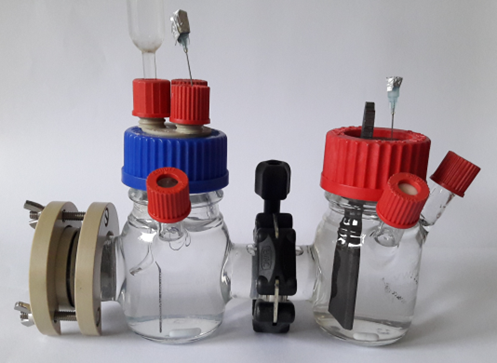
| Period: | 01.01.2024 – 31.12.2026 |
|---|---|
| Partner: | |
| Funder: |
Bundesministerium für Bildung und Forschung (BMBF) Förderkennzeichen: 031B1398F |
| Project manager: | Ina Depentori |
| Team: | Sustainable Electrochemistry |
The aim of the project is to establish an E. coli-based production platform which indirectly utilises CO2 as carbon source for the production of cysteine, aspartate and glycolate. Therefore, CO2 is first (electro)enzymatically converted into methanol. The project’s focus is on the optimisation of FaldDH, on the implementation in a reaction cascade and on process design development. In addition, parallel to this, E. coli production strains capable of metabolising methanol are to be developed.
Methanol assimilation by E. coli strains is based on the reductive glycine pathway (rGlyP), which is to be further optimised in terms of growth rates as part of the project. Targeted pathway engineering will be used to control the production of asparate, glycolate and serine (precursor of cysteine) Growth-optimised production strains, which are usable for industrial purposes, should be created in an approach to adaptive laboratory evolution. These will then be characterised using genome and proteome analysis in order to identify additional genes that have positive effects on growth and productivity.
These findings will also be used to optimise cysteine production strains in order to enable a highly efficient and scalable production of methanol-based cysteine. Different chassis strains of the partners will be modified to analyse the effects of different genetic backgrounds. All work is supported by the inclusion of bioinformatics data and AI models.
back